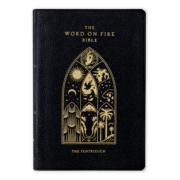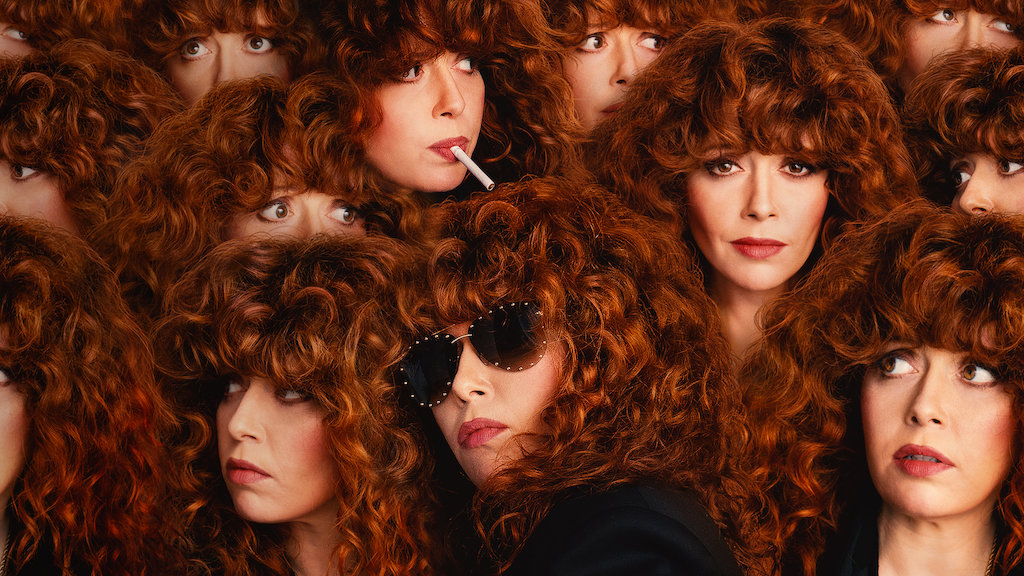Natasha Lyonne studied philosophy at the Tisch School of the Arts. But more importantly for her worldview as an actress, writer, and director, she is the granddaughter of Hungarian-Jewish Holocaust survivors. Describing her background, she told Marc Marron in 2013, “My father’s side, Flatbush, and my mother’s side, Auschwitz.” After many celebrated roles in film and television going back to her childhood, as well as well-publicized battles with addiction, in 2019 Lyonne and her friend Amy Poehler produced the first season of the Netflix hit Russian Doll, which explored profound questions about death in the context of a wild New York art and tech scene. Having died on her birthday, Nadia (Lyonne) must relive the same night repeatedly until she breaks the cycle, with a little help from Alan (Charlie Barnett), who is also living through a time loop.
In season 2, recently released on the same platform, we follow the brash, chain-smoking Nadia down to the next doll in the matryoshka. Lyonne told Jimmy Kimmel on the Tonight Show, “If Season 1 was sort of a meditation on ‘How do I stop dying?’, then in a way, season 2 is posing the question ‘How do I start living?’” Reconnecting with Alan, Nadia explores her family’s past, traveling by an enchanted subway train back to her own birth in 1982, to her mother’s childhood in 1968, and to her grandmother’s life in Nazi-occupied Budapest in 1944. Like the Back to the Future films, Russian Doll is an entertaining portrait of someone attempting to change the past. And like the 1990s sci-fi show Quantum Leap, it explores not only going to the past but being someone else in the past—in this case, Nadia’s family members.
Her present and future self is inextricably tied to who her ancestors were and what happened to them.
But for Lyonne, Russian Doll is a deep reckoning with her own history, as well as a profound philosophical exploration of life itself. The show is a study of identity that will resonate with most viewers, and it revisits the American Jewish experience in the long wake of Naziism that few works of fiction tackle so astutely these days. Lyonne told the New York Post, “I don’t think you can take Hitler out of the equation, the way I moved through my teenage years especially. I’ve almost not been able to reconcile the real weight of what it means that that can happen, and that that can happen within a line of family that’s so close to you.”
Ultimately, season two of Russian Doll is about Nadia’s realization that her present and future self is inextricably tied to who her ancestors were and what happened to them. Nadia comes to see that she is not her own creation and cannot care for herself alone—a discovery depicted in a mind-bending storyline in an episode where Nadia gives birth to herself. At the same time, Alan, who travels to 1962 East Berlin where his Ghanaian grandmother is a student, realizes he cannot change the past but can only appreciate it more deeply as the means of forming his character to effect his present circumstances. When Alan speaks to a young version of his grandmother, she reassures him, “There’s no other way that it was supposed to have been.”

In the final episode of the season, we see Lyonne’s philosophical chops on full display, tying together themes from throughout the series and represented in the image of a young Nadia, standing in the corner of a New York City subway car, reading the novel Demian by Hermann Hesse. Drawing on both Nietzsche and Jung, Demian is a story about coming to live in the light of reality by identifying deeper sources of meaning than are readily apparent. For most of the series, Nadia’s journey is largely that of a Nietzschean überfräulein; but she suddenly understands how individual virtue and strength may instead lie in a mysterious design for one’s life that only makes sense in the love of family and community. Implicitly, Nadia comes to know that God is not dead. Nadia finally experiences what Jung and others call “individuation,” facing her shadow side, embracing her family’s trauma, and finally re-entering society a better, more fully-formed person with a mature psyche. Nadia’s story arc this season is completed as she finds spiritual wholeness in line with her family’s Jewish identity, and she is finally able to grieve the death of a friend and mentor with a sense of abiding joy.
Russian Doll contains raw language, nudity, and adult, contemporary themes. It is not for everyone, and mature Christians must determine for themselves how much they can or should view. That said, the show is also full of good music, including the recurring song “Gotta Get Up” by Harry Nilsson, along with a blend of unsettling electronica and soothing, old-world classical pieces. The show is a feast of sight and sound with a brilliant, hilarious, relatable female lead in the forefront. Lyonne’s scripts are chock-full of wit and wisdom. For anyone who loves both the life of the mind and a soulful, heart-rending drama with weird twists, Russian Doll is a must-see. We eagerly await the intellectually deep and emotionally engaging material that may be nested in a future season 3.
Season 2 of Russian Doll is now streaming on Netflix.
